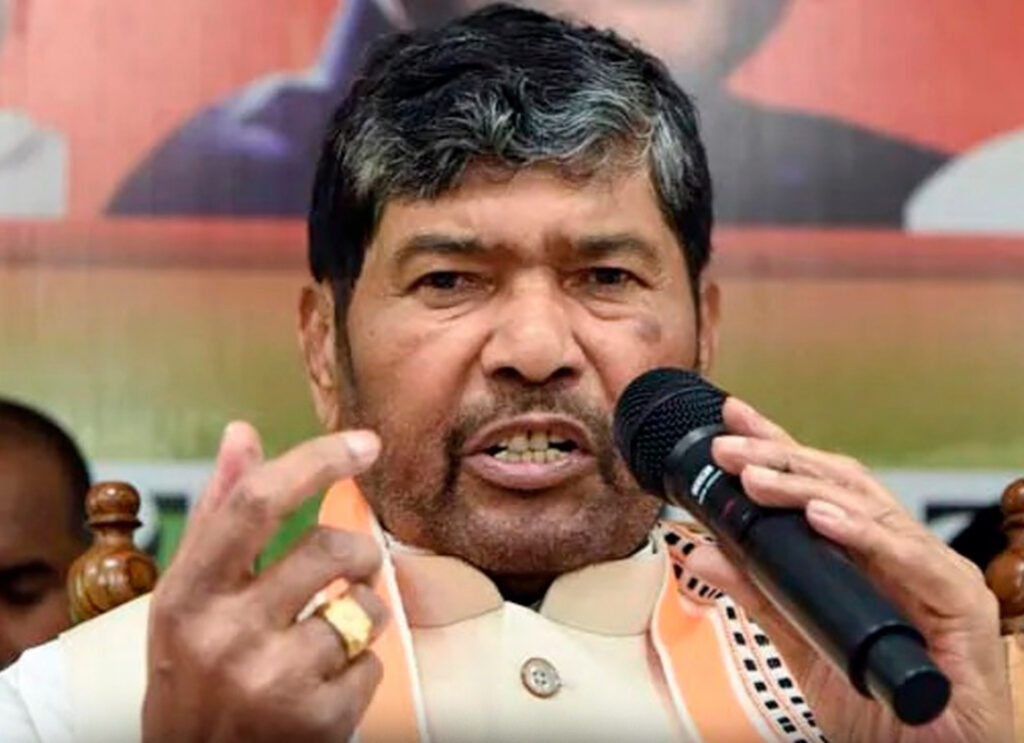Pashupati Kumar Paras, a key minister in Prime Minister Narendra Modi’s cabinet, tendered his resignation following a significant political development that saw his party, the Rashtriya Lok Janshakti Party (RLJP), sidelined in the allocation of seats for the upcoming 2024 Lok Sabha elections in Bihar. The decision came on the heels of the National Democratic Alliance’s (NDA) announcement of its seat-sharing arrangement with Chirag Paswan’s Lok Janshakti Party (LJP – Ram Vilas), effectively excluding the RLJP from contesting any seats in the state.
The backdrop of this political upheaval was set on Monday when the NDA, a formidable coalition in Indian politics, unveiled its list of candidates for all 40 Lok Sabha constituencies in Bihar. The announcement revealed a strategic alliance between the Bharatiya Janata Party (BJP), the Janata Dal (United) or JD(U), and Chirag Paswan’s faction of the LJP, leaving Paras’ RLJP out of the equation. Considering our group included five MPs and reflecting on my committed service, it’s discouraging to observe the lack of acknowledgment we received. This perceived injustice has compelled me to step down from my ministerial responsibilities,” Paras stated during a press briefing.
Despite his succinct statement, Paras refrained from discussing his or his party’s forthcoming strategies. As the sole representative of his party in Modi’s cabinet, he used the opportunity to express his respect for the Prime Minister, whom he labeled a prominent figure. His gratitude towards Modi was palpable, yet he did not shy away from articulating his discontent regarding the treatment meted out to him and his party. He emphasized his commitment and fidelity to the NDA, lamenting the unfairness he believes was directed at him.
The distribution of electoral seats as announced by the NDA saw the BJP securing the right to contest in 17 constituencies, while the JD(U) was allocated 16 seats. Chirag Paswan’s LJP was given five seats, marking a significant shift in the political dynamics within Bihar, particularly given that this allocation represented the first instance of the BJP obtaining a larger share of seats than the JD(U), its chief ally in the state. The new alignment showcases the altered political equation following the recent alliance between the BJP and the JD(U). The NDA’s confidence in clinching all 40 seats in Bihar was voiced by Vinod Tawde, the BJP’s Bihar election in-charge, during a press conference at the BJP’s headquarters in New Delhi. He shared the stage with representatives from the state’s allied parties, asserting a united front in the upcoming electoral battle. The 2019 elections saw the NDA securing 39 out of the 40 seats in Bihar, setting a high benchmark for the coalition.
This strategic realignment within the NDA, favoring Chirag Paswan’s faction over Paras’, has starkly highlighted the internal complexities and rivalries that often underscore coalition politics in India. The exclusion of the RLJP from contesting any seats, despite its previous contributions to the NDA’s success, underscores the fluctuating nature of political alliances and the strategic considerations that drive them. As the political landscape of Bihar gears up for the forthcoming Lok Sabha elections, the ramifications of Paras’ resignation and the realignment of seat-sharing agreements within the NDA promise to inject new dynamics into the electoral contest.
The political narrative in Bihar is witnessing a significant reshuffle with Paras’ departure from the Modi cabinet, marking a moment of introspection for the NDA as it navigates the challenges of maintaining unity among its diverse constituents. The unfolding events underscore the intricate dance of alliance politics, where electoral strategies and seat negotiations can precipitate unforeseen developments, reshaping the political contours of a region. As Bihar inches closer to the Lok Sabha elections, the impact of these shifts within the NDA, coupled with the reactions from various political quarters, will be closely watched, potentially setting the stage for a highly contested electoral battle.

